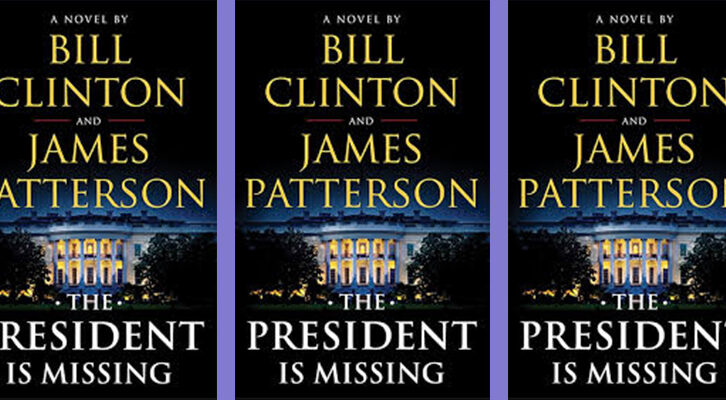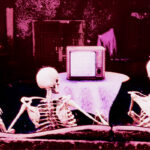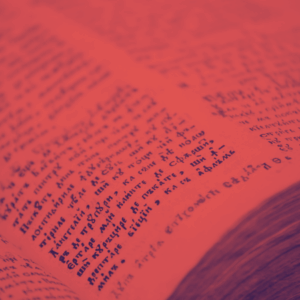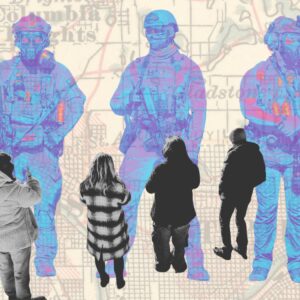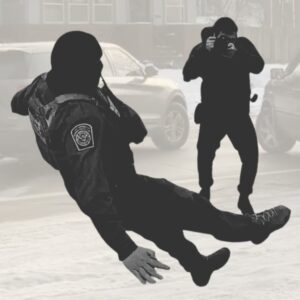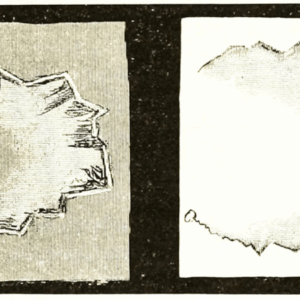
When Even the Greatest of Writers Grapples with Self-Doubt
Gabrielle Bellot on W.B. Yeats and the Fine Line Between Arrogance and Humility
Months before his death in 1939, W. B. Yeats found himself at a crisis point. He was writing many poems; at the same time, he was afraid that he had become a kind of fraud, an impostor, lifelessly trotting out his old themes because he had nothing new to say. “I sought a theme and sought for it in vain,” he wrote in “The Circus Animals’ Desertion,” the penultimate poem in his great 1939 collection, Last Poems. “What can I but enumerate old themes?” he mused. The title suggested that his inspiration had fled him, like the departure of a carnival’s acts; his circus animals, if he could find them at all, refused to perform anything satisfactory or fresh, and the circus itself had dimmed, like the eyes of someone who has forgotten how to dream.
Yeats had come to an impasse as a writer. In simpler terms, he was having writer’s block and doubting his abilities, though it was magnified by his being in his seventies and his awareness that his health was failing, that he, like those circus animals, did not have long left on the stage. In the famous, stark final stanza of the poem, he suggested that he needed to find that fey spark, that spool of dream, he once knew so well, even if it meant going back to the beginning—whatever and wherever that might be. “Now that my ladder’s gone,” he said, “I must lie down where all the ladders start / In the foul rag and bone shop of the heart.”
I have always been struck by “The Circus Animals’ Desertion.” Not because it’s unusual for Yeats—it contains a bit of the mythic dreaminess many of his poems do, and its darkness is less apocalyptically tinted than some of his earlier pieces, like “The Second Coming”—but because it feels like such a twilight poem, a poem written when you feel a peculiar kind of lowness: frustrated in your writing but not so much that you cannot write at all, for you are, counterintuitively, inspired by your lack of inspiration, even if you think the work you produce is nothing. It’s a poem for those of us who feel we are no longer doing anything new, no longer accomplishing anything; we wear the thick coats of impostors and hate ourselves. We feel like, whether or not we’ve been published, we aren’t really writers. We’re failures.
I know the feeling well, the way the waves rock—or don’t—when your boat has drifted deep into the sargassum of self-doubt. I feel it often. When I tell friends this, sometimes they react with surprise, as I’ve had the fortune of my work being published in places I once never imagined I could see my name in. But being published doesn’t remove the feeling of failure. It’s an almost universal symptom of being a writer who isn’t ruled solely by their own arrogance that we will feel, at some point, like impostors, like one-trick ponies, like authors who will never amount to anything, or whose time has passed without us realizing how sacred and finite those clock-ticks were. I don’t pretend to feel quite what Yeats did, our ages and careers and lives so different, but I understand it, all the same.
In my worst hours, when I was younger, I sometimes imagined all I could do that had any value was write; if I lost that, I lost whatever worth I had. I no longer believe that, that death-song I used to hear on the gray wind of depression. But when you value your art, losing it hurts. It really does feel, to use Yeats’ mot juste, like a desertion.
Yet, ironically, I also read “The Circus Animals’ Desertion” as a kind of hopeful paean. It does not, after all, tell us to give up when we feel like we’ve lost the bit of dream our work comes from. Instead, it directs us, simply and powerfully, to go forth and find it again. Write, Yeats seems to suggest, even against death—the death of our inspiration, or the one who measures us, when our time is nearly up, without us knowing. It is a poem of death, yes—but not one of ending, but, instead, of new beginnings, painful and poignant as they may be.
*
In some way, Yeats’ poem was a farewell. It was not his last, nor was it the final poem in Last Poems—it was the penultimate piece, with the shorter envoi poem, “Politics,” ending the collection—but it had the distinct feeling of being an epitaph. (Lines from another of his late-in-life poems, “Under Ben Bulben,” would in fact appear on his gravestone; the poem, strikingly, ends with a description of Yeats’ own body being laid to rest and with a suggestion for his epitaph, inspired by a book of Rilke’s poems that upset him.)
But aging unnerved him, so he frequently crafted images nodding to the beauty of youth, or outright depicted oldness as grotesque in his less nuanced moments.
Once, he had carried around the dream-cloth of his art easily enough; as he wrote in “The Lake Isle of Innisfree” five decades earlier, he could simply “arise and go” in his imagination and writing to a place he was not,
for always night and day
I hear lake water lapping with low sounds by the shore;
While I stand on the roadway, or on the pavements grey,
I hear it in the deep heart’s core.
He felt buoyed, lifted, by the Celtic mythology he initially drew from, and it was as if, even in a modern space utterly unlike the more marvelous worlds of myth, he could still be transported there by using his imagination, and could transport readers there, too. We could go to Lake Innisfree with him, even if we were stuck on the side of a road nowhere near a body of water. “I, being poor, have only my dreams,” he said in “He Wishes for the Cloths of Heaven,” but that seemed to be enough.
But aging unnerved him, so he frequently crafted images nodding to the beauty of youth, or outright depicted oldness as grotesque in his less nuanced moments. “An aged man is but a paltry thing, / A tattered coat upon a stick,” he wrote dismissively in “Sailing to Byzantium” in 1928, though the poem also implied that a young soul could reside in an older body, if “Soul clap its hands and sing, and louder sing / For every tatter in its mortal dress.” But as he grew older, his health seesawed, and though he would experience a spurt of new creativity some years prior to his death, he began to yen, darkly, for his youth. In Christina Rossetti’s “Goblin Market,” Laura, drawn to the calls of goblins selling all manner of things at an eldritch bazaar, trades a lock of her hair to goblin merchants in order to taste the forbidden fruit they sell and, afterwards, she can no longer hear or see the goblins and yearns, as her body wastes away, for the almost lasciviously delightful fruit; when he wrote “Circus Animals” near the end of his life, Yeats resembled Rossetti’s protagonist, pining away after the fantastical visions he once seemed to conjure so readily.
Worse yet, he was haunted by guilt about some of his earlier work. “Now that I am old and ill… I lie awake night after night / And never get the answers right,” he wrote in “Man and Echo,” an unsettling late poem in which he wonders about his role in the 1916 Easter Rising, when the Irish waged a large-scale insurrection against British rule. “A terrible beauty is born,” he had written after the uprising, for, despite his support of nationalism, he felt conflicted by the degree of bloody violence. Questions rush at him in the dark:
Did that play of mine send out
Certain men the English shot?
Did words of mine put too great strain
On that woman’s reeling brain?
Could my spoken words have checked
That whereby a house was wrecked?
And all seems evil until I
Sleepless would lie down and die.
“Lie down and die,” the echo of the title chillingly responds. It wasn’t simply his inspiration that had fled; he was falling apart inside, center unable to hold, falcon unable to hear falconer. But his art, too, had crumbled, or so he felt; even at the end of this poem, he writes, suddenly, that “I have lost the theme,” distracted by the sound of some “stricken” animal. The night, closing in around the man of the title like a vast shawl, was closing around Yeats, too, and he lay awake, ill and arguing with his own guilt-ridden echoes.
*
Yeats, of course, was far from alone in expressing pessimism about his own poetry in, well, a piece of poetry.
One could abandon writing… to be, instead
their ideal reader, ruminative,
voracious, making the love of masterpieces
superior to attempting
to repeat or outdo them
Derek Walcott mused in his own poem of authorial twilight, “Volcano,” a piece that, like Yeats’, seems written at a time of imaginative gridlock, a time when one’s confidence as a writer has waned. It is a tribute to the authors in his own pantheon of greats; it is also an admonition of an age that, he believes, no longer appreciates them, no longer has time to read them. And it’s an admission, tacitly, of self-doubt in his work. As he smokes a cigar, Walcott, leviathan of St. Lucian literature, ponders a world in which leviathans no longer exist, and in which his time, like the orange at the tip of that cigar, is fading down. How easy it would be to do that, he muses acidly, especially in an age when “awe… has been lost,” when “so many take thunder for granted. / How common is the lightning, / how lost the leviathans / we no longer look for!”
The tone of Walcott’s poem differs from Yeats’, critiquing both himself and the reader, and there’s a hint of arrogance amidst his doubt, as well. Moreover, Yeats’ poem was composed just before his death, while “Volcano,” published in 1976, appeared when Walcott was in his late forties, with many decades to go. But the alternatingly pessimistic tone, along with the image of the slow-burning cigar, suggests something similar in both poems, as if Walcott, even then, was imagining his own steady burn, his art reduced to the quiet, commonplace ash of a life, even as his songs, like the Irishman’s, would endure.
A writer, I always remember being told in a workshop, should hold arrogance in one hand and humility in the other.
But, with or without fame, we can never know if our work will live on. Perhaps it’s enough to sing, and keep singing, and hope, after our own night-shawl has closed around us, that someone else will hear it, and, hardest of all, remember it.
I cringe at the simplistic myth, all too often held by male authors, of the Great Author who will unquestionably be remembered. I think of my frustrations: how hard it is to turn on creativity like a faucet for deadline after deadline; how little money freelancing usually pays; how difficult it is to balance the writing work I’m lucky to have with the stress-weight of depression and dysphoria.
Still, I want someone to remember even just one of my songs, especially when a night is too silent, and that old gray curls back around me like a shroud, making me wonder, again, if any song of mine will be worth recalling at all. In these moments, I try to think, again, of ladders and old shops.
*
Yeats died at two in the afternoon on the 28th of January, at 73 years of age. Just two days earlier, he had still been revising his work; he gave his spouse “corrections” for “Under Ben Bulben,” one of the poems—appositely about death—he had been constructing months before. For all his fears that he was at the end—of life, of inspired composition—Yeats produced prolifically in those final months. Somewhat creepily, he had likened the last few years of his life to a “second puberty,” in part because he was having relations with a bevy of much younger women and because he was writing a lot. In truth, his circus animals never deserted him; they weren’t there to begin with, at least not in the way the image might suggest, as he was able to weave the threads of his dreams into beautiful things that went far beyond some routine carnival attraction. He was selling himself short—but that was good. A writer, I always remember being told in a workshop, should hold arrogance in one hand and humility in the other; with only one or the other, we’re doomed to fail, but with a balance of both, we can survive, even prosper.
“In the middle of life it happens that death comes / and takes your measurements,” the Swedish poet Tomas Tranströmer wrote in “Black Postcards.” “This visit / is forgotten and life goes on. But the suit is / sewn in the silence.” Yeats, who had made his songs into a grand garment already, as he wrote in “A Coat,” knew Death was taking down his measurements, and though he had not given up on life when she came for him, finally, he perhaps knew, too, that it was okay to put one arm, then another, through that final, funereal suit, for he had left this world his songs, for any and all to hear and wear, and for the wisest to acknowledge but ignore wearing, for they are working on their own cloths of song. He may have felt like a failure in moments before he walked off into that placeless place. It’s impossible to know, barring any postcards from the dead. But even as he began to feel Death’s finger entwined in his own, even as he listened to all the clocks of the world ticking that reminded him of his own failing health, he still wrote and wrote, failing at being the failure “Circus Animals,” his own poem of the twilight, suggested.
If anything, the poem seems almost ironically optimistic by virtue of how meaningful it is, telling us not to give in to failure, even when we feel our art and dreams have deserted us. Write, Yeats seems to say from his journey to that rag and bone shop, even when Death has brought your suit.
Gabrielle Bellot
Gabrielle Bellot is a staff writer for Literary Hub. Her work has appeared in The New York Times, The Atlantic, The New York Review of Books, The New Yorker, The Paris Review Daily, The Cut, Tin House, The Guardian, Guernica, The Normal School, The Poetry Foundation, Lambda Literary, and many other places. She is working on her first collection of essays and a novel.











